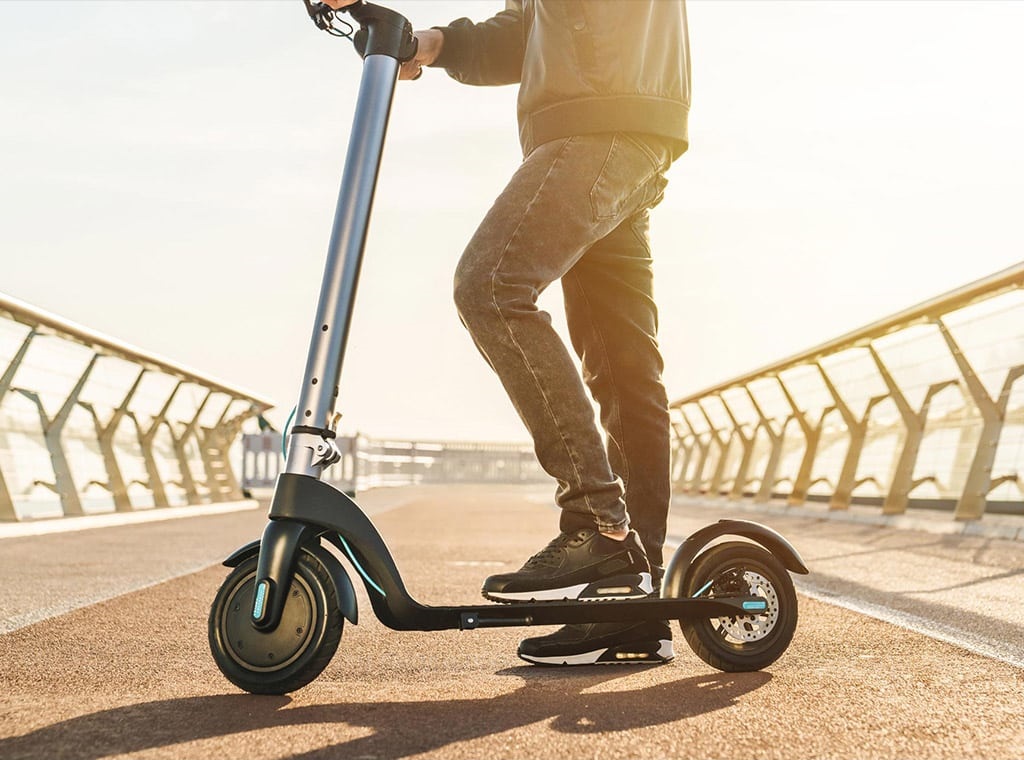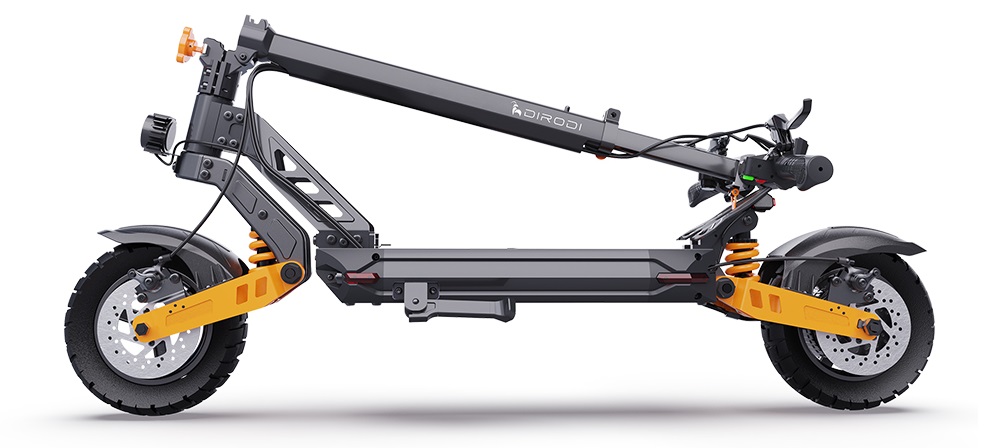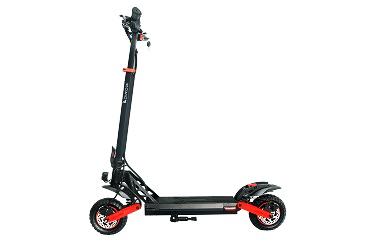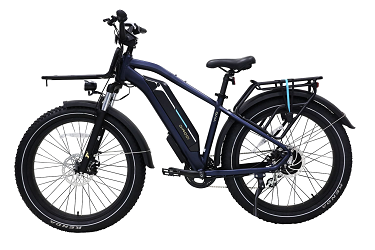Electric Scooters VS E-Bikes
1. Weight
2. Storing & Parking
3. Battery Range & Charging
4. Speed
5. Road Variety
6. Price & Options

These days, more than ever, there is a growing urge for electric vehicles such as bikes and scooters. That urge has a clear reason: none of us enjoys sitting in cars amidst the noise and tension of rush hour, or waiting for underground trains that deprive us of open fresh air, no matter how efficient they may be.
Therefore, it is wise to vote for electric vehicles, as they align with modernity and cause less damage to the world around us. However, you might be confused by the various pros and cons that electric vehicle owners have discussed. Perhaps you are still undecided about whether you should choose an electric scooter or an e-bike.
Obviously, you would choose the one that is more useful. However, "useful" is a word that you need to define based on your own routine and transportation needs. It differs from person to person. So, we are here to make those preferences clear in your mind. Remember, whether you opt for e-bikes or e-scooters, your everyday life is going to change for the better with lots of fun experiences of moving around. Here's how electric scooters and bikes are different:
1. Weight
You might be thinking it’s electric with a motor, why would I worry about the weight anyway?! Well, that is true but only while riding. What if you need to carry it up and down stairs or load it onto your car? One way or another, you will need to carry your ride in your hands. Remember, scooters are more manageable. With this foldable compact vehicle, you can easily break your journey at any point and get on public transport like buses or trains. Obviously, with e-bikes, you don’t have that choice. So considering portability, scooters can definitely get the vote as they weigh around 10 kg lighter than e-bikes. A good example of a well-designed popular scooter is the DiroDi Flexi, which weighs 12.5 kg and is so feather-light and transportable compared to any model of e-bikes.
2. Storing & Parking
You might be thinking it’s electric with a motor, why would I worry about the weight anyway?! Well, that is true but only while riding. What if you need to carry it up and down stairs or load it onto your car? one way or another you will need to carry your ride in hands. Remember, scooters are more manageable. With this foldable compact vehicle, you can easily break your journey at any point, get it on public transport like buses or trains. Obviously, with e-bikes you don’t have that choice. So considering portability, scooters can definitely get the vote as they weigh around 10 kg lighter than e-bikes.

3. Battery Range & Charging
Let us see the difference through numbers. The average battery range of a scooter is around 20 km, while it can go up to over 100 km in an electric bike depending on the model. The difference is huge, but there’s something you cannot ignore, and that is recharging time, which is an advantage in scooters. Clearly, the battery range is directly connected with charging time. Scooters take less time to be fully charged. As mentioned, some riders see it as an upside as they won’t have to sit for hours and wait for the ride to be ready to run. So, your call… Which one matters most? Longer distance or shorter charging time?
4. Speed
Fun fact: neither of these two electric vehicles can actually make a difference in your average speed. Why? Well, normally, the top speed of e-bikes would be higher than scooters (25 to 30 km/h for bikes and 22 to 25 km/h for scooters), but that wouldn’t matter as long as you're not racing or riding on an empty road with no obstacles. We all know that speeding in city streets with cars and people is not possible, even if you want to. Whether you are on a bike or a scooter, you will have to slow down to pass between cars, obstacles, or even people. Still, if you want to know which one can go faster, the answer is: e-bikes perform better than scooters in most cases.
5. Road variety
Generally, you cannot expect a scooter to pass a difficult track with flying colors! Scooters are made for easy solid streets. Of course, even if you decide to get an electric bike, you need to consider that not all of them can perform well on bumpy terrains. Some models do, and some don't. But overall, when it comes to riding on tricky uneven roads, e-bikes outperform scooters.
6. Price & Options
Clearly, the simple frame structure, fewer parts and accessories, smaller motor, and battery of a scooter have made it much more affordable than a bike. The point here is that it can result in both pros and cons. This is how: when paying more for an e-bike, you get a steadier and safer ride as it comes with better ergonomics and less effort for balancing. Also, you get more cargo capacity with essential parts such as racks and carriers, and even extra seating. On the other hand, the smaller and simpler system of a scooter gives you the luxury of lighter weight as well as the joy of minimalism.
Overall, let’s summarize it all in a bird’s eye view:

Electric Scooters
- Light-weight & easy to carry or lift
- Storable indoors, in closets and small apartments
- Compact & transportable on buses, trains, etc.
- Easier to load on car
- More affordable
- Allowed to be carried indoors ( malls, stores, etc.)
- Battery recharges faster
________________
- Not functional on difficult roads
- Needs more balancing
- Not functional in long distance riding
- Less battery range
- No load carriage

Electric Bikes
- Relatively faster
- More cargo capacity & Extra seating
- functional on uneven bumpy terrains
- Better ergonomics (sitting position, needs less balancing)
- See Also: How to protect your Electric Bike from theft
________________
- Heavy-weight
- Not storable in small houses
- Not portable on most personal or public vehicles
- More expensive
Electric Scooters vs. E-Bikes